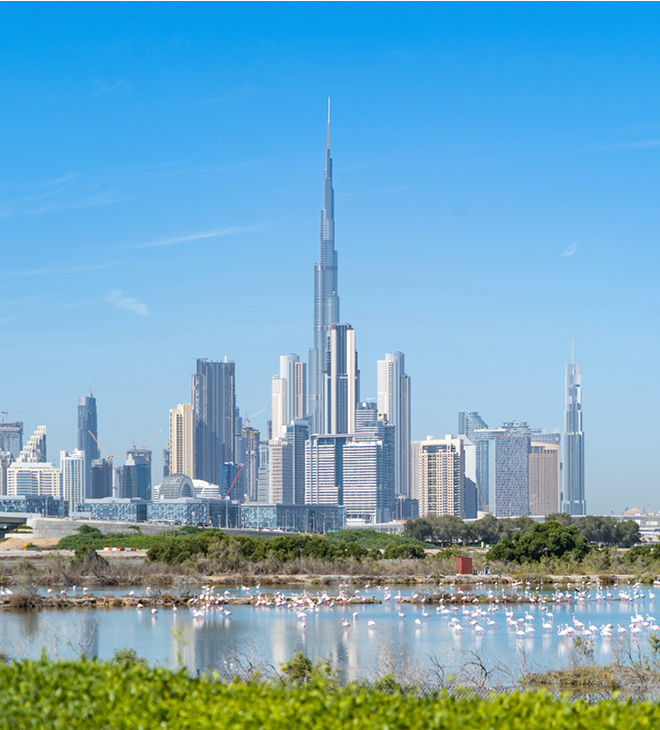Dubai showcases sustainable tourism agenda in lead up to COP28

Dubai, which is hosting the 28th Conference of the Parties (COP28) to the UN Framework Convention on Climate Change later this month, is prioritising sustainable development as part of its economic expansion plans, with travel, tourism and hospitality core growth pillars.
DST showcases industry wide sustainability drive
Launched by Dubai’s Department of Economy & Tourism (DET), the Dubai Sustainable Tourism (DST) initiative encompasses the city’s efforts to boost sustainability in its hotel sector.
The initiative brings together public and private sectors and focuses on three core pillars: economic, social, and environmental sustainability. Activities include training and certification programmes for tourism stakeholders, promoting sustainable practices to visitors, and supporting sustainable tourism infrastructure development.
DST mandates that all hotels comply with 19 key sustainability requirements, with qualifying operators receiving the DST Stamp. This three-tier system (Gold, Silver, and Bronze) acknowledges operators that meet high standards in energy and water efficiency, waste management, and staff education and engagement.
As one of the UAE’s fastest-growing hotel and hospitality developers and operators, The First Group is committed to pioneering new sustainable hospitality initiatives in line with the DST strategy.
Through its sustainability benchmarking programme, the firm is working to reduce its carbon footprint and help establish its hotels and hospitality outlets as industry leaders in this space. From eliminating plastics and introducing energy-saving fittings and fixtures to launching a mass recycling programme, the firm is taking practical and meaningful steps to conserve the environment.
Sustainable transportation and infrastructure
Dubai has introduced a fleet of hybrid taxis and electric buses to reduce carbon emissions and improve air quality. By 2030, the city plans to have 20% of all trips made by autonomous vehicles. Meanwhile, the Dubai Metro is one of the world’s most popular and successful mass transit systems. The fully automated, driverless train network runs on electricity, reducing carbon emissions and road congestion. It is powered by a mix of clean energy sources, including solar power.
Waste reduction and recycling
Dubai Municipality has introduced a robust recycling programme to encourage the separation of recyclable waste at the source. This initiative has successfully diverted significant volumes of waste from landfills, thereby reducing the environmental impact of waste disposal.
The First Group is spearheading efforts to reduce the amount of waste produced by its hotel and hospitality operations. The firm’s Recycling First waste management programme is on track to meet its target of recycling 15% of all daily waste produced across its hotel portfolio by the end of 2023, up from 2% previously.
Eco-tourism attractions
Dubai is home to a growing number of eco-tourism attractions such as the Dubai Desert Conservation Reserve, dedicated to conserving the Arabian Desert's unique flora and fauna, and the Al Marmoum Desert Conservation Reserve, which is the largest protected area in Dubai, accounting for almost 23% of the emirate’s land mass.
Another important ecotourism destination is the Hatta Mountain Reserve. Located in the Hajar Mountains – the highest peaks of the eastern Arabian Peninsula – the reserve boasts an abundance of wildlife, thanks to its numerous wadis and two manmade dams, alongside hiking tracks and various mountain adventure experiences.
Setting global benchmarks
As Dubai gears up to host COP28, its sustainable tourism initiatives are not just about reducing the city’s environmental impact but also about setting a global example. Dubai’s comprehensive approach, from stringent sustainability requirements for hotels to promoting eco-tourism and enhancing sustainable transportation and recycling, underscores its commitment to a sustainable future. These efforts are critical in shaping a tourism sector that is not only economically successful but also environmentally responsible.



